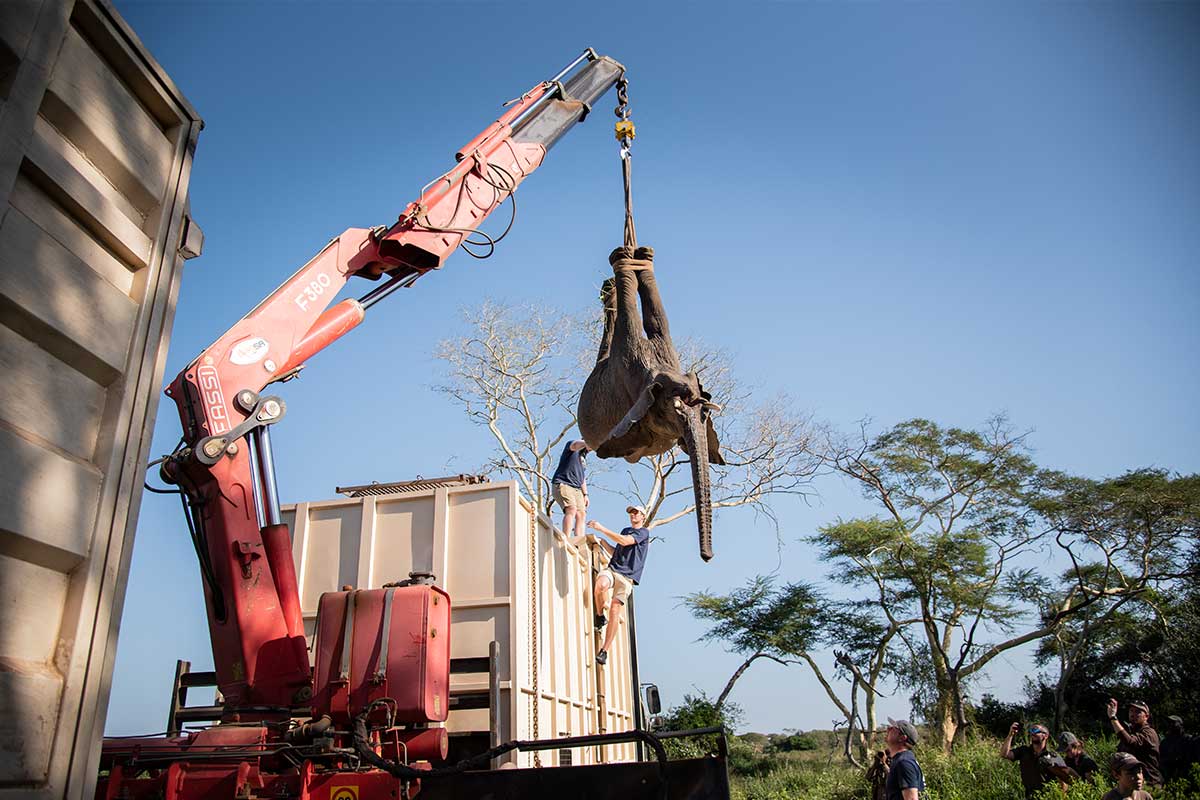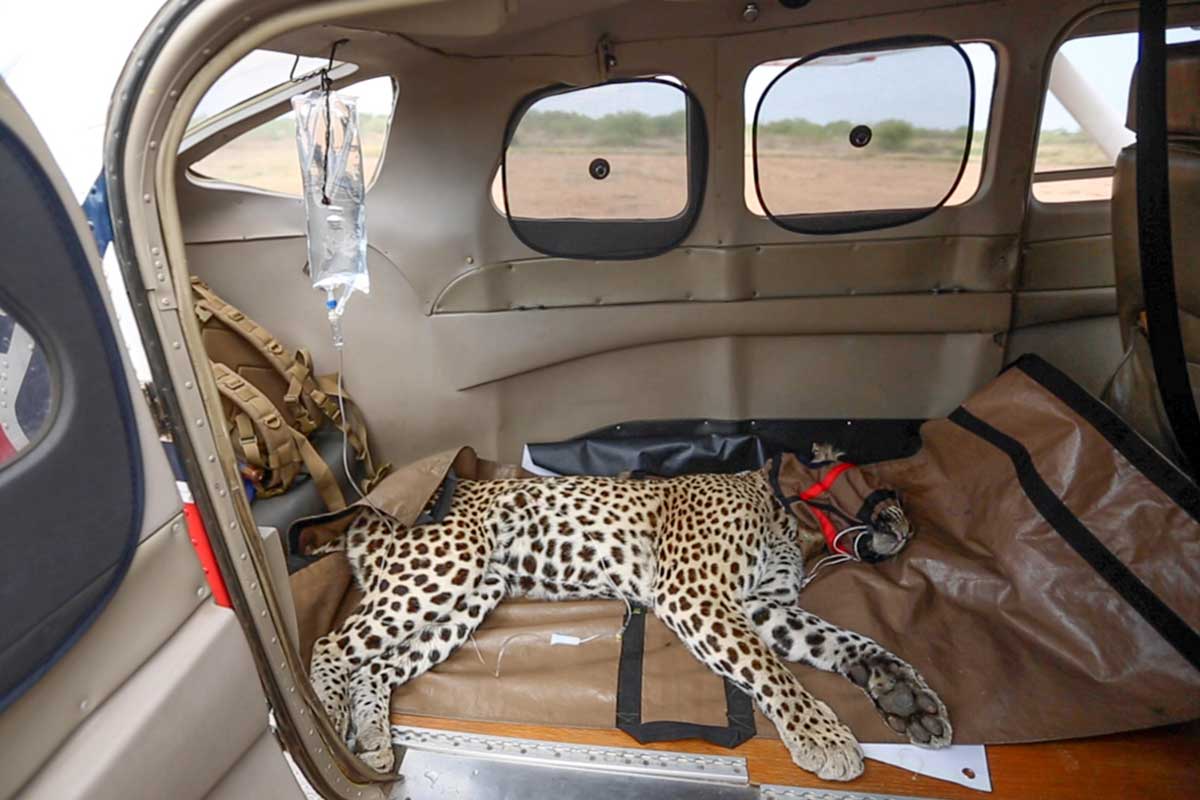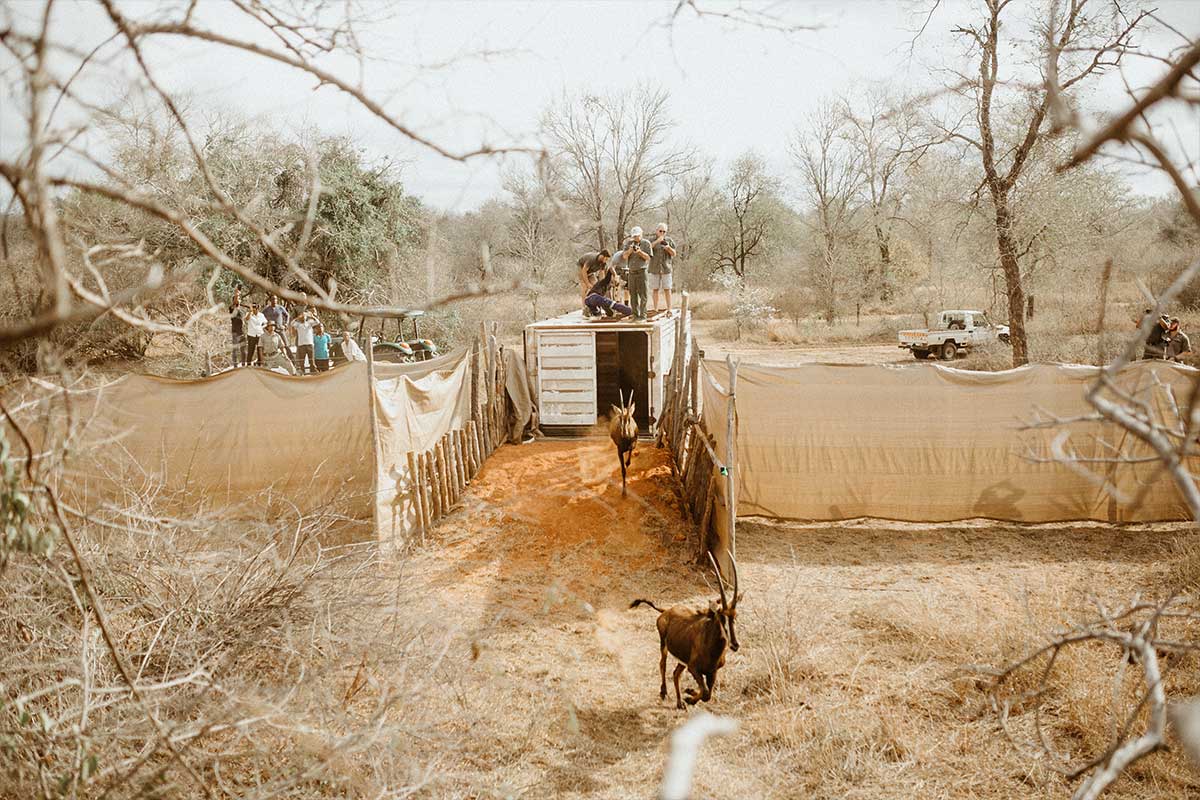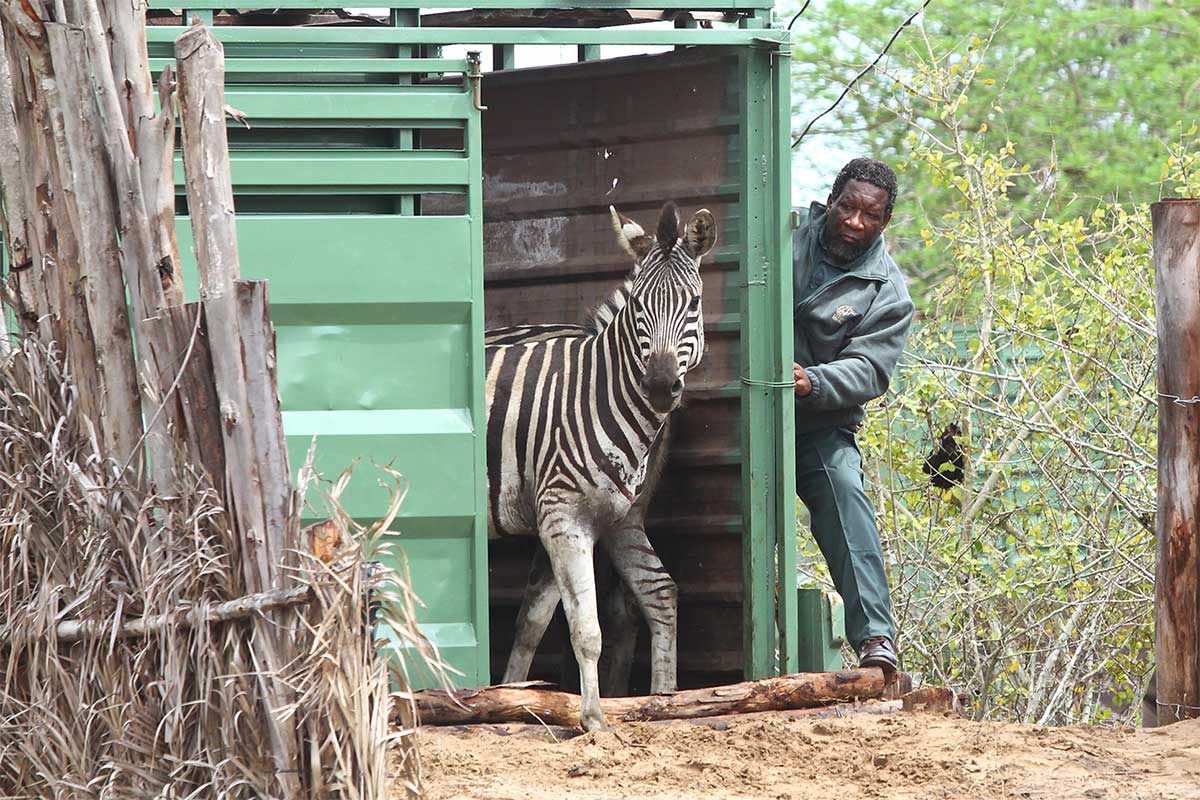Rewilding the Great Limpopo Transfrontier Conservation Area
Over the past two decades, Peace Parks has translocated 24 animal species totaling almost 15,000 to various wilderness areas within transfrontier conservation areas across southern Africa.
Rewilding as a form of ecological restoration has the potential to create self-sustainable environments, mitigate climate change, and maintain biosphere Integrity. When keystone species are no longer there to perform their functions, ecosystems are forced to radically change or cease altogether, contributing to climate change and with catastrophic effects on the vulnerable communities who depend on healthy ecosystem services and sustainable nature-based economies for their survival. By reintroducing wildlife to ecosystems where the species once thrived, biodiversity is once again restored, while the potential for securing the future of the protected areas through eco-tourism is increased exponentially.
One of Peace Parks’ great conservation success stories is the transformation of Zinave National Park – a key component of the Great Limpopo Transfrontier Conservation Area. Here, a once decimated, silent wilderness area has been revitalized with life through the translocation of more than 2,295 animals of 19 different species into the park over the past decade, with wildlife numbers now flourishing to around 6,500 animals. With plains game and other herbivores flourishing, the past few years also saw the successful reintroduction of apex predators like hyenas and leopards. In addition, attracted by the thriving new ecosystem, lions have started to return to the landscape naturally.
Under co-management by Peace Parks in partnership with the National Administration for Conservation Areas, other activities in the 408,000 ha have included the establishment of a 30,000 ha wildlife sanctuary, founding of a joint park management team, upgrading of park infrastructure, training and appointment of additional rangers, and various community development programs. Counter-poaching capacities in Zinave’s sanctuary have also been strengthened to such an extent that keystone, high-value conservation species are well protected.
Your contribution will go towards returning more keystones species to the park, and protect them, with the aim of creating a wildlife paradise that will attract global tourism to ensure sustainability and provide equitable benefits to the people of the region.








